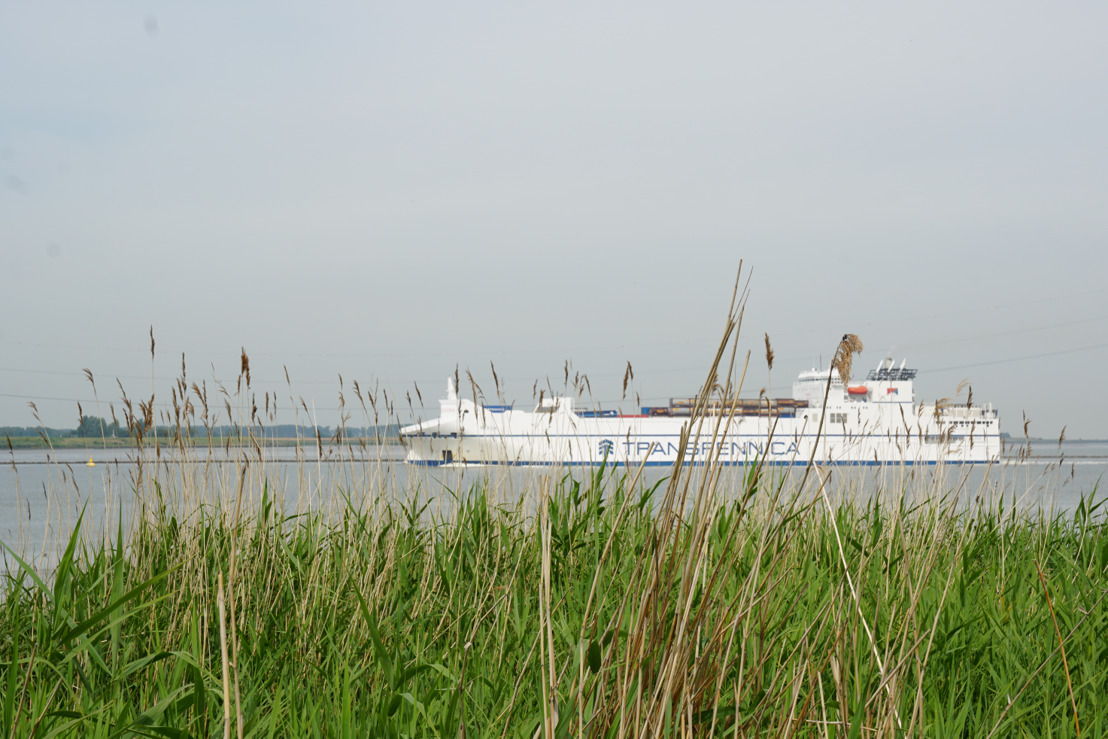A first in Belgium: seven leading players sign cooperation agreement for the transport of hydrogen
The climate target to reduce CO2 emissions in Belgium by 80% by 2050 compared to 2005 levels is a major challenge. Hydrogen has an important role to play in the mix of solutions to achieve results. That is why Deme, Engie, Exmar, Fluxys, Port of Antwerp, Port of Zeebrugge and WaterstofNet are joining forces. A joint study serves as a basis to coordinate delivery of concrete projects that shape the production, transport and storage of hydrogen.
Bringing expertise together
In a hydrogen economy, hydrogen is an important carrier for renewable energy to be used for electricity and heat production, for mobility, for fuel production and as a raw material for industrial production. Crucial in the viability of a hydrogen economy is the generation of sufficient renewable electricity for the production of hydrogen. Since in Belgium wind and solar energy are not sufficiently available, part of the necessary renewable energy must be imported. However, efficient and economic solutions for the import, transport and storage of hydrogen require specific expertise. That is why seven major industrial players and public stakeholders are joining forces: Deme, Engie, Exmar, Fluxys, Port of Antwerp, Port of Zeebrugge and WaterstofNet have signed a cooperation agreement to bring their expertise together in a coordinated way and to take steps towards a Belgian hydrogen economy.
Roadmap for hydrogen as an energy carrier
In a first phase, the partners will make a joint analysis of the entire hydrogen import and transport chain. The aim is to map the financial, technical and regulatory aspects of the various components in the logistics chain: production, loading and unloading and transport by sea and via pipelines. The outcome of the analysis must be a roadmap that indicates the best way to transport hydrogen for the various applications in the energy and chemical sector. The results of this analysis, which is expected to be ready in approximately one year, will form the bridge towards concrete projects.
Luc Vandenbulcke, CEO Deme: “We strongly believe that hydrogen can play a crucial role in the CO2-free energy transition. As a pioneer in the development, construction and financing of offshore wind farms, we want to make full use of our expertise for the production, transport and storage of green hydrogen from renewable energy sources. Thanks to this unique partnership of ports and industry, Belgium can play a leading role in the green hydrogen economy and further reduce CO2 emissions. "
Philippe Van Troeye, CEO Engie Benelux: "Hydrogen is an essential link in a low-carbon ecosystem. Our participation in this project and our desire to share our expertise in renewable energy and hydrogen fits perfectly with ENGIE's ambition to be the leader of the carbon-free transition by developing integrated and customized solutions for our customers.”
Nicolas Saverys, CEO Exmar: “As an international transporter of natural gas, LPG, ammonia and other petrochemical gases, Exmar is also focusing on the future. We want to help investigate how the hydrogen gas transport chain can be developed in the most efficient and economic way. This way, our long-standing expertise in the transport and transformation of gas in the safest way can support all initiatives for the large-scale use of hydrogen gas.”
Pascal De Buck, CEO Fluxys: “As a gas infrastructure company, transporting and storing gas is the core of our business. Today this is natural gas but in time this will increasingly be replaced by other gases such as hydrogen and biomethane. By maximally reusing our infrastructure for carbon-neutral energy carriers, we are shaping the energy system of the future. ”
Jacques Vandermeiren, CEO Port of Antwerp: “We want to give every chance to hydrogen as an energy carrier, as basic element for chemistry and as a fuel, and therefore commit ourselves as an active pioneer of the hydrogen economy. As Europe's largest integrated chemical cluster, we are an important link in this. We also look at collaboration with spearhead clusters and knowledge institutions and want to learn from this hydrogen coalition for our international ambitions.”
Joachim Coens, managing director Port of Zeebrugge: “Today, Zeebrugge is already an important landing point for the wind energy that is extracted in the Belgian North Sea. In the coming years we will have a build-up of a huge amount of variable renewable energy, from wind, sun and tides. The challenge is to transport and store these large quantities of green energy. The port of Zeebrugge has a role to play here, as a multifunctional energy hub. If hydrogen can be the solution for energy transport and storage, then this can perfectly take place in Zeebrugge, where state-of-the-art LNG infrastructure, i.e. storage capacity and pipelines, and years of know-how are available. "
Adwin Martens, Director of WaterstofNet: “As a pioneer in hydrogen development in Flanders and coordinator of the IBN Power-to-Gas, we are particularly pleased that a number of strong parties will bring their expertise together on the theme of large-scale import, transport and storage of hydrogen. This collaboration offers important perspectives for a further large-scale rollout of hydrogen applications. "
Contact details
DEME
Vicky Cosemans
T +32 3 250 59 22 | M +32 496 588 645
cosemans.vicky@deme-group.com
ENGIE
Anne-Sophie Hugé
M + 32 473 48 14 12
EXMAR
Frederik Van Nuffel
T +32 3 247 5694
FLUXYS
Laurent Remy
T +32 2 282 74 50 | M +32 479 65 92 29
PORT OF ANTWERP
Barbara Janssens
T +32 3 205 20 49 | M +32 483 03 12 72
barbara.janssens@portofantwerp.com
PORT OF ZEEBRUGGE
Joke Swyngedouw
T +32 50 54 32 11 | M +32 479 51 94 43
WATERSTOFNET
Isabel François
T +32 14 401 219 | M +32 478 98 21 40
isabel.francois@waterstofnet.eu
